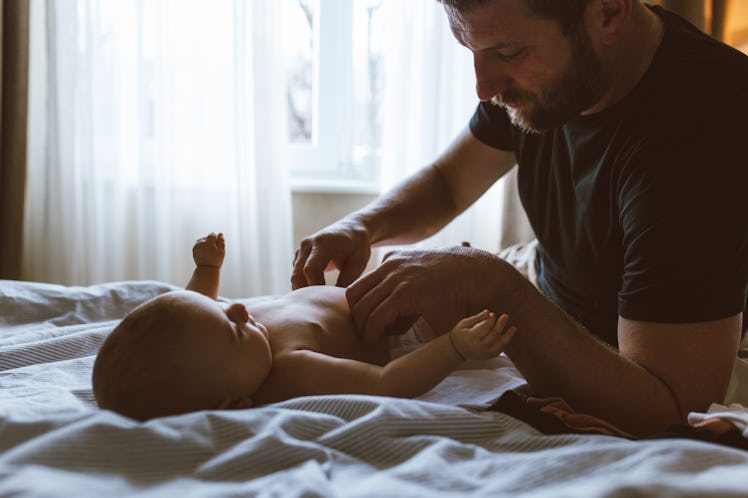Don't Worry About Your Son's Penis Size And If It's Small
Fatherly’s parenting expert addresses a father’s fear that his son has a small package.

Fatherly, My wife and I welcomed our baby boy, Jonathan Jr. (we call him J.J.) about six months ago. As part of the team, I regularly change J.J.s diaper and I can’t help but notice that his penis looks kind of small. I know it sounds weird, but I’m freaked out about it. I don’t want my boy to go through life with a small dick. Should I be worried?
Jon,
***
Dear Jon,
The first thing you need to understand is that pediatricians hear about these “my son has a small package” worries all the time. Don’t feel strange about your concern. It’s normal.
However, your worries that your son has a small package are also needless or, at least, pointless. Your son’s penis will develop how it is genetically programmed to develop, and there’s not much you can do about it.
Your concern should mainly be whether your son’s penis works. If it can expel urine — though hopefully not into your eyes (been there) — your kid’s alright. For all those parents that ask about their kid’s genitals, only a tiny percentage need to go on to make serious decisions involving treatment or surgery.
That said, there are some specific reasons a baby’s penis might appear small. Babies have abdominal fat that can hide a portion of their shaft. Also, penis growth is connected to hormonal changes, not just height and weight, so it can get out of whack sometimes. Until puberty kicks in, there’s no telling how things will turn out. And even after puberty, he probably won’t tell you how things turned out.
I will admit that the first time I took my boy swimming, I was a bit worried about how he might compare himself to others in the changing room. But it turned out to be a non-issue. After all, adult anxieties are generally limited to adults. So just keep this one to yourself, and, when he gets old enough, let him know you’re there to talk about any issue, no matter how big or small it might be. Ultimately, that’s the only thing you can do to help.
This article was originally published on